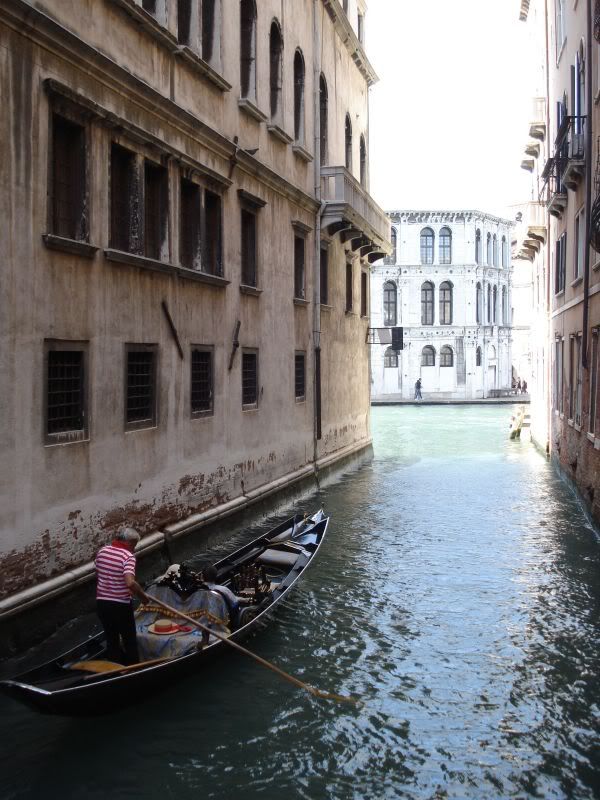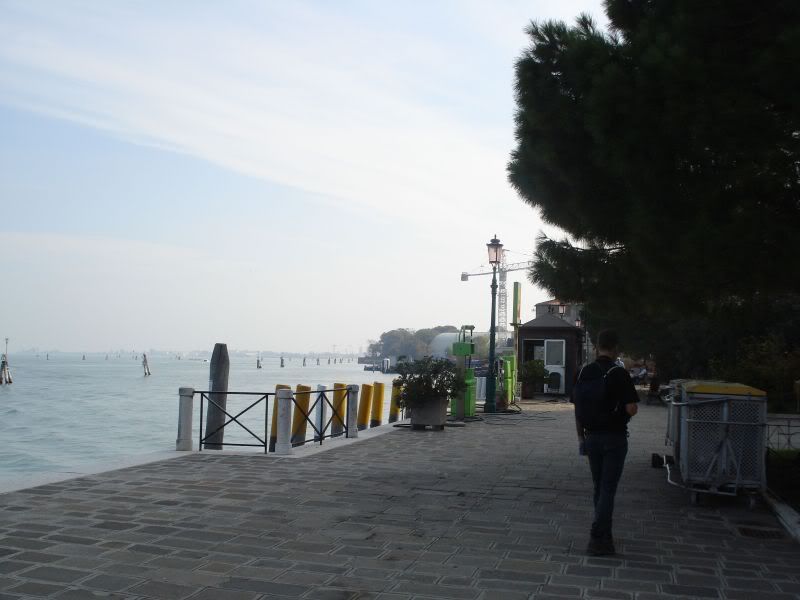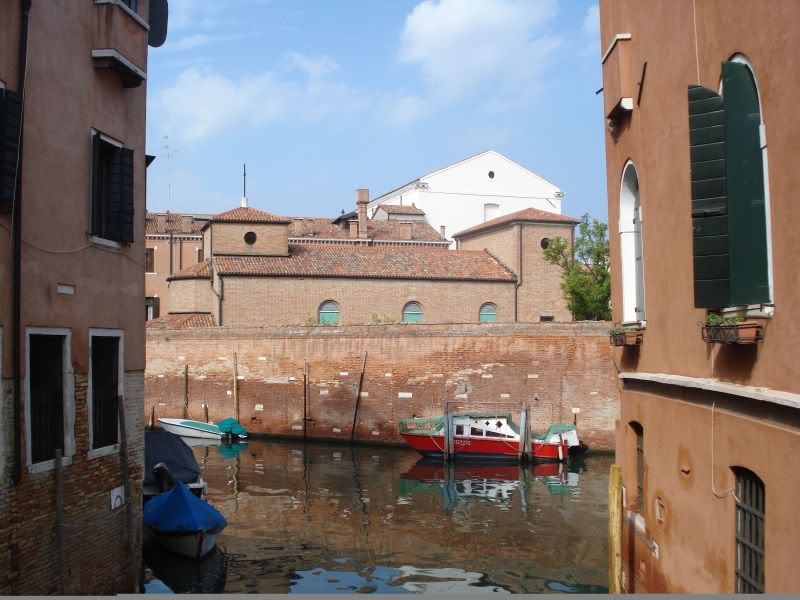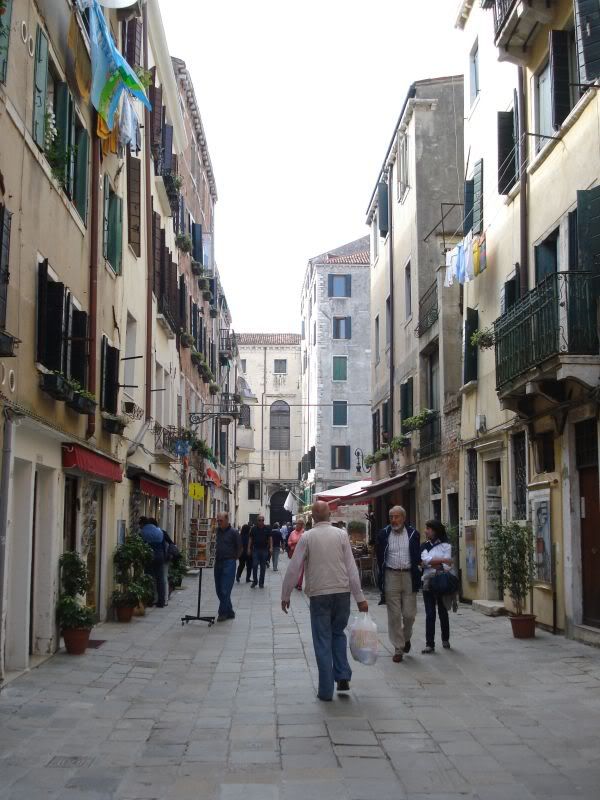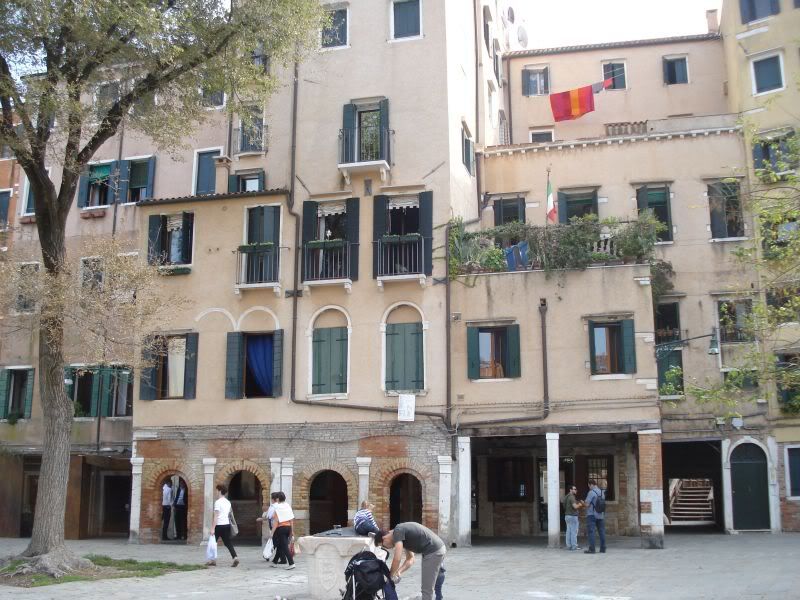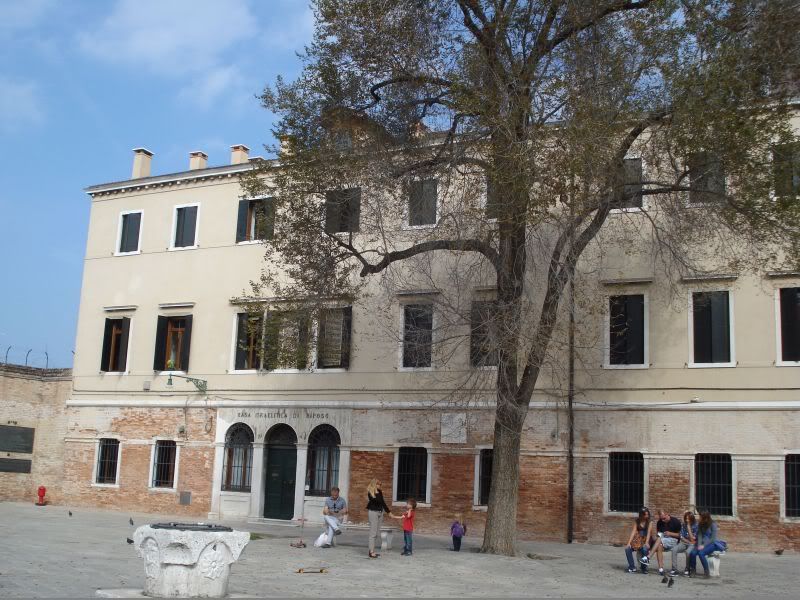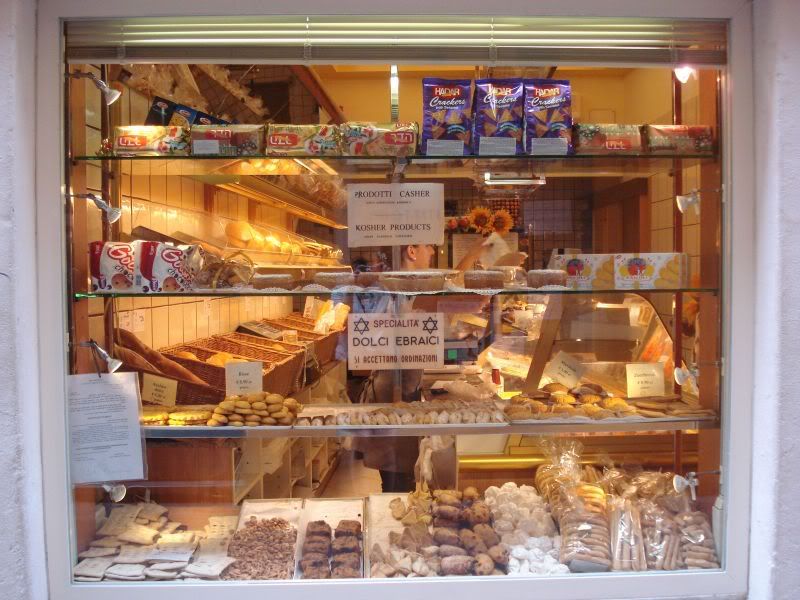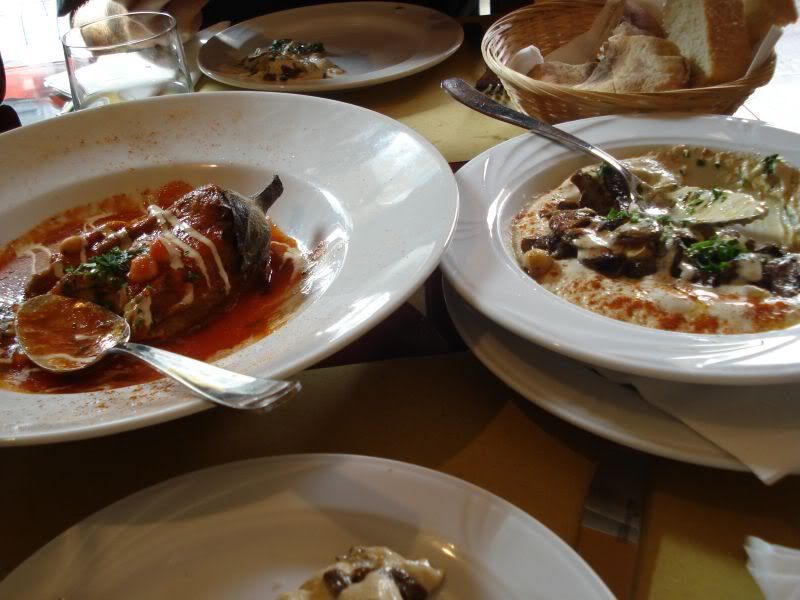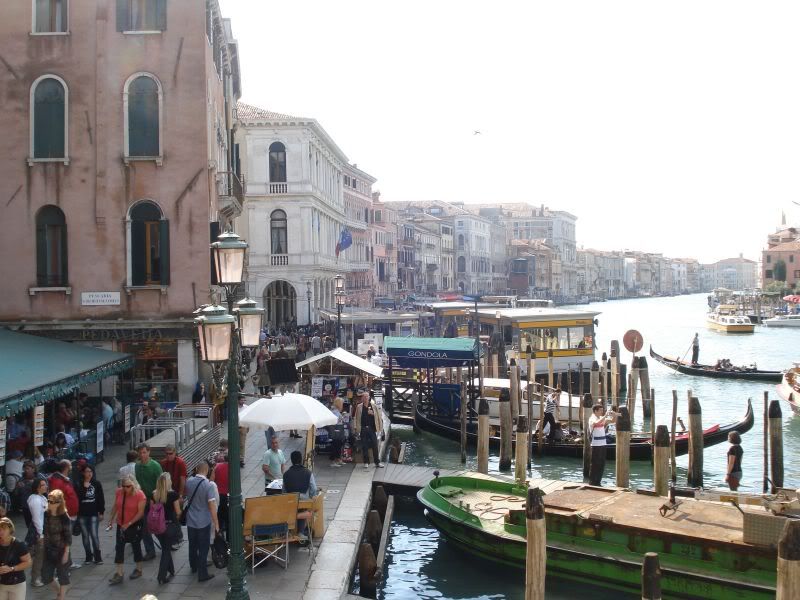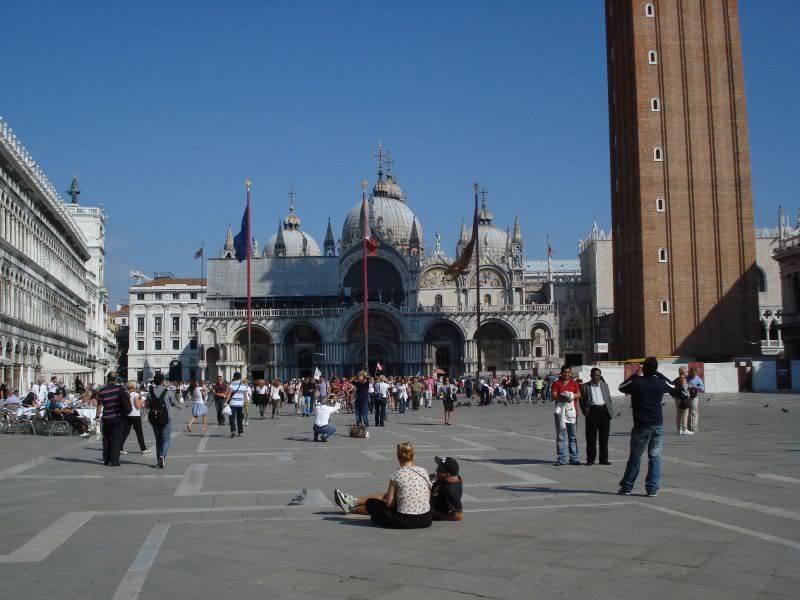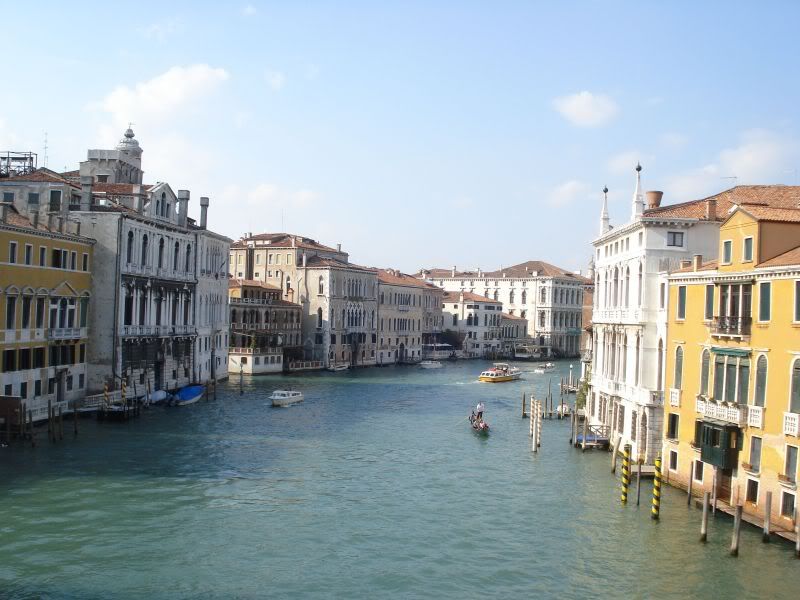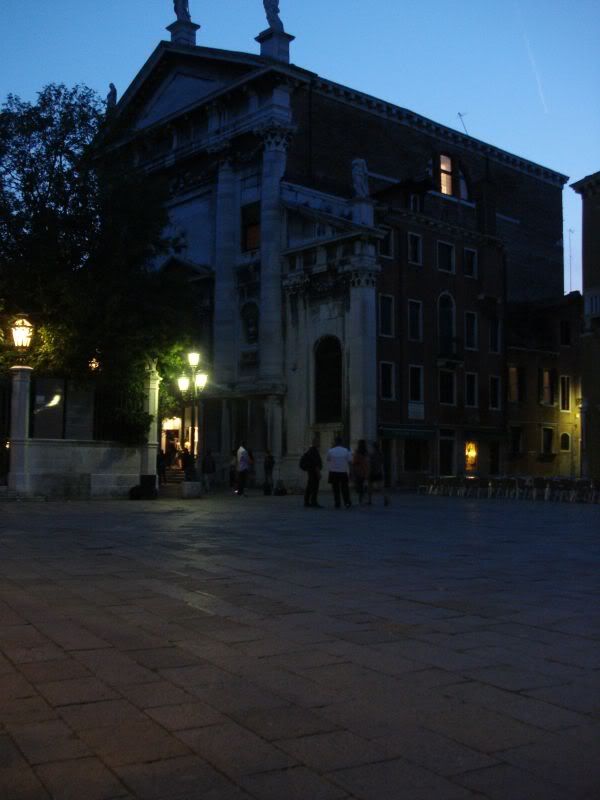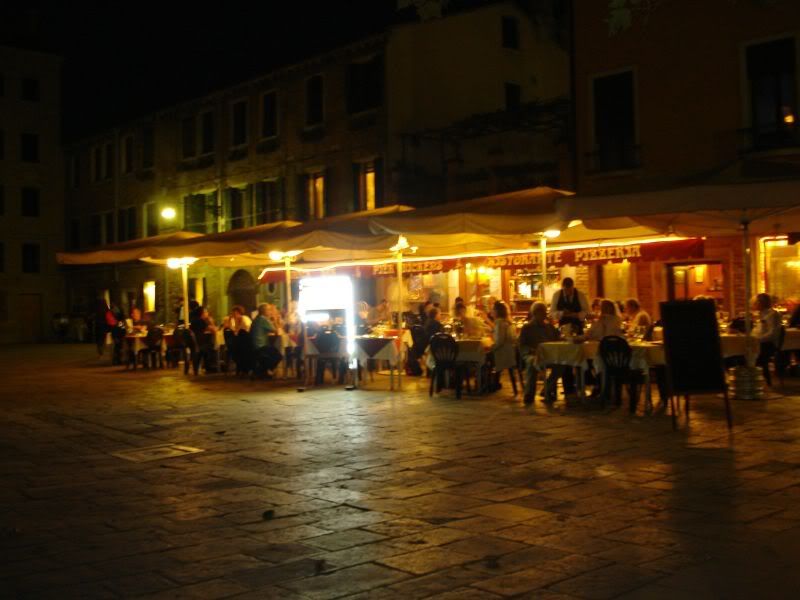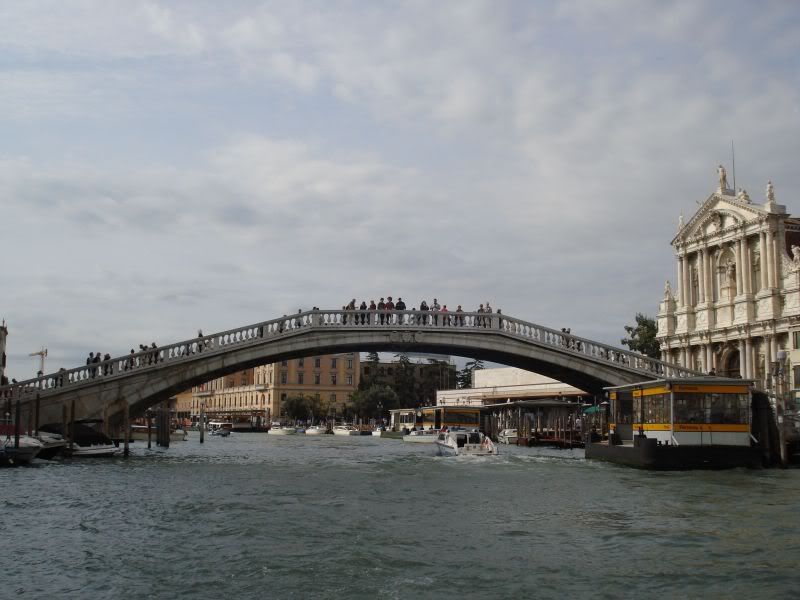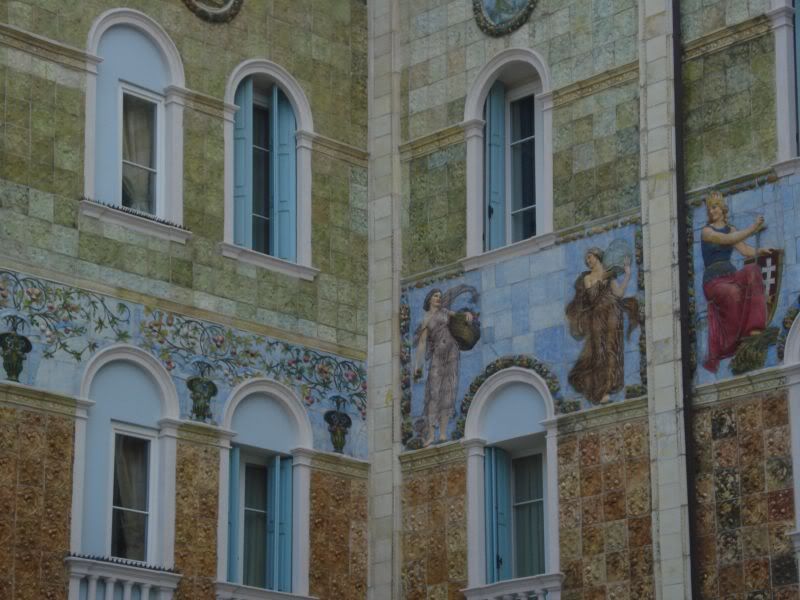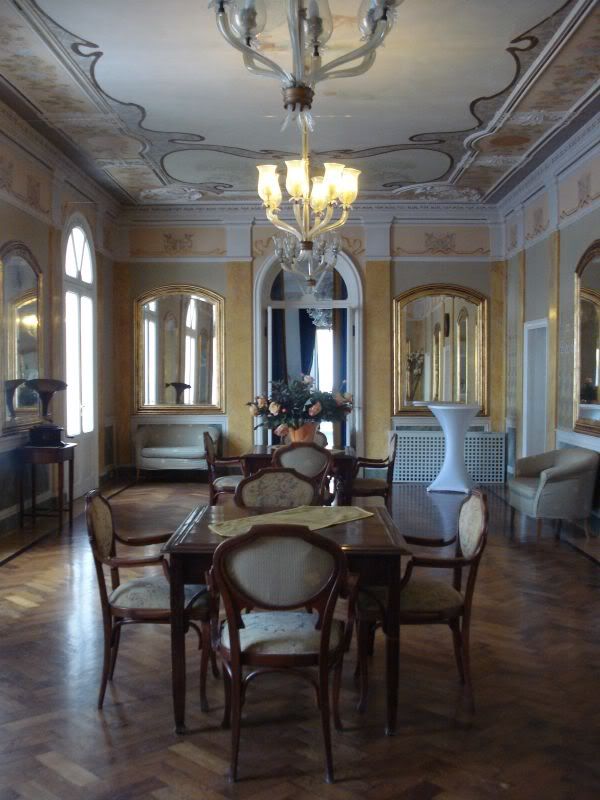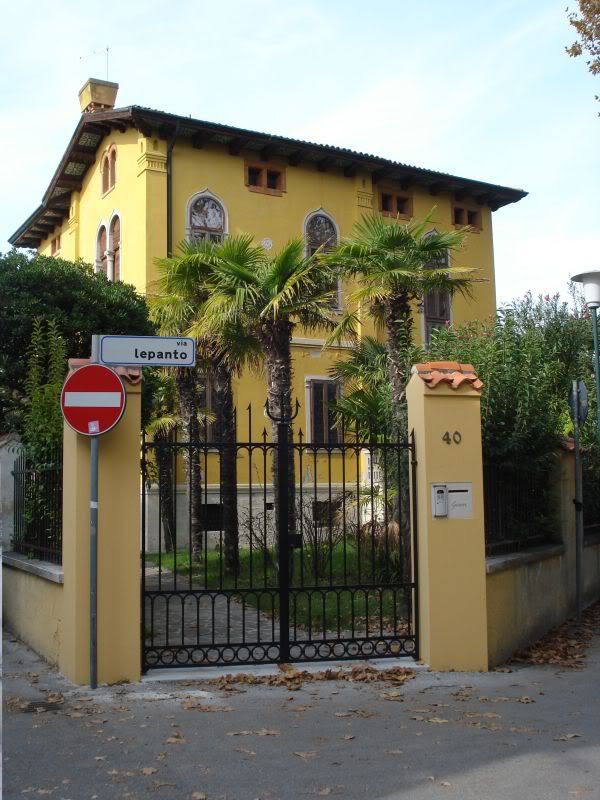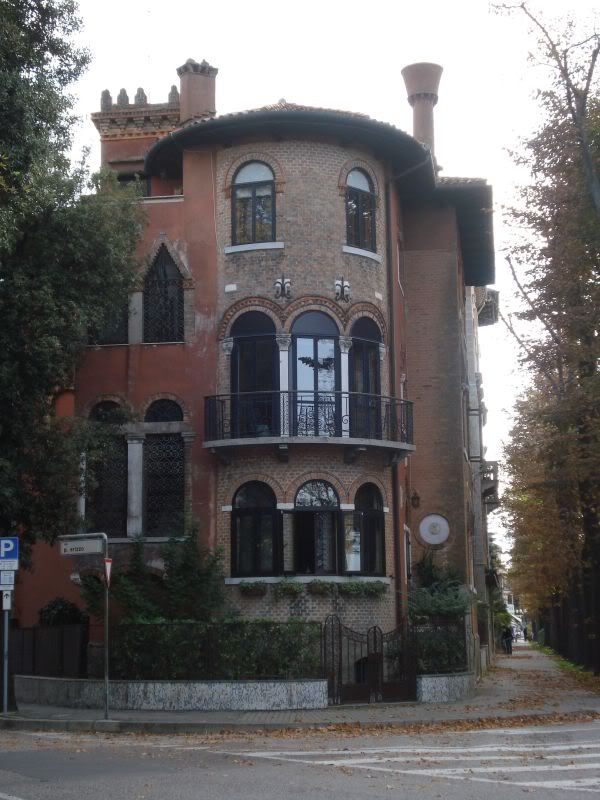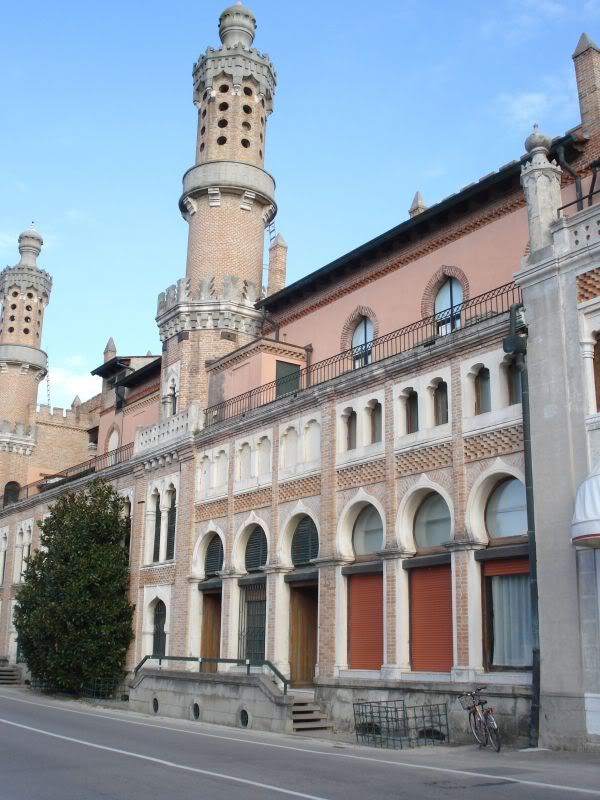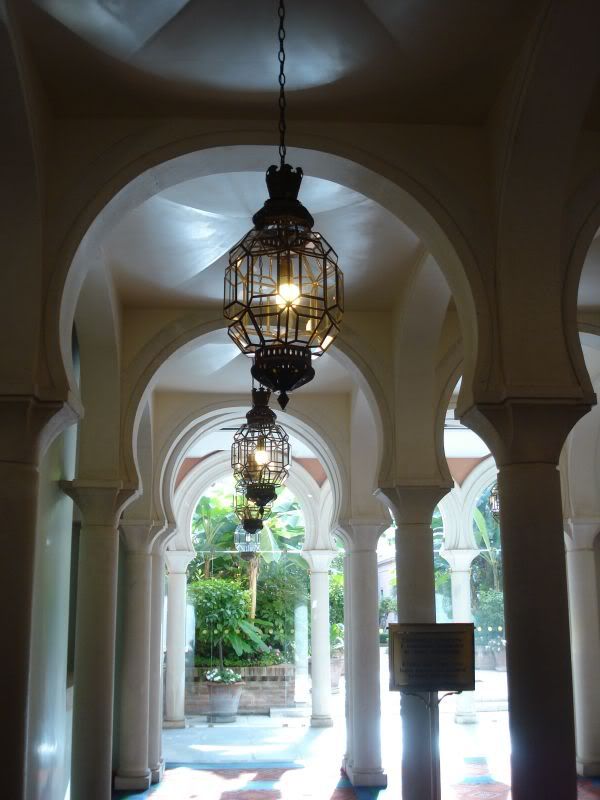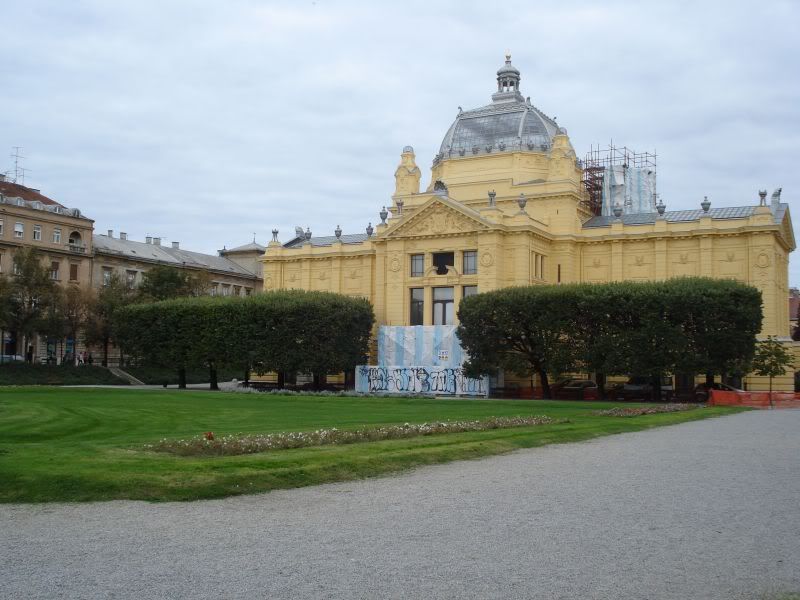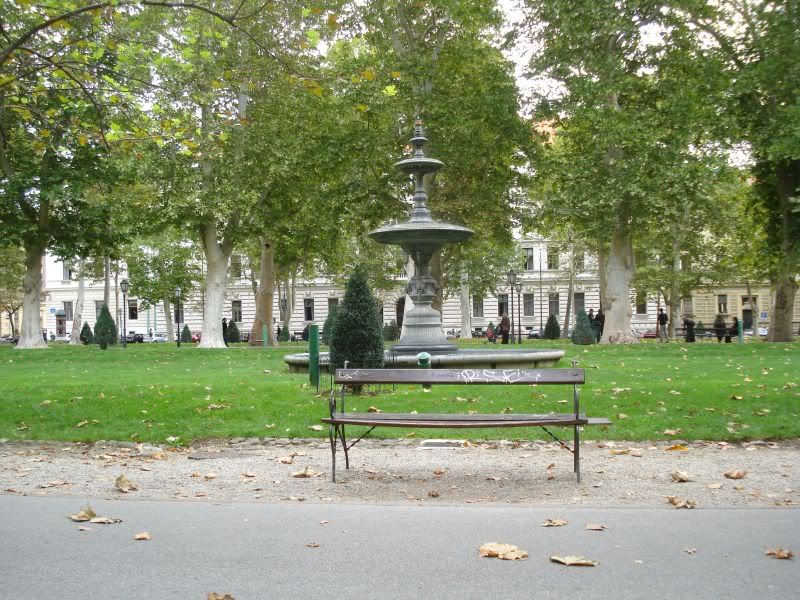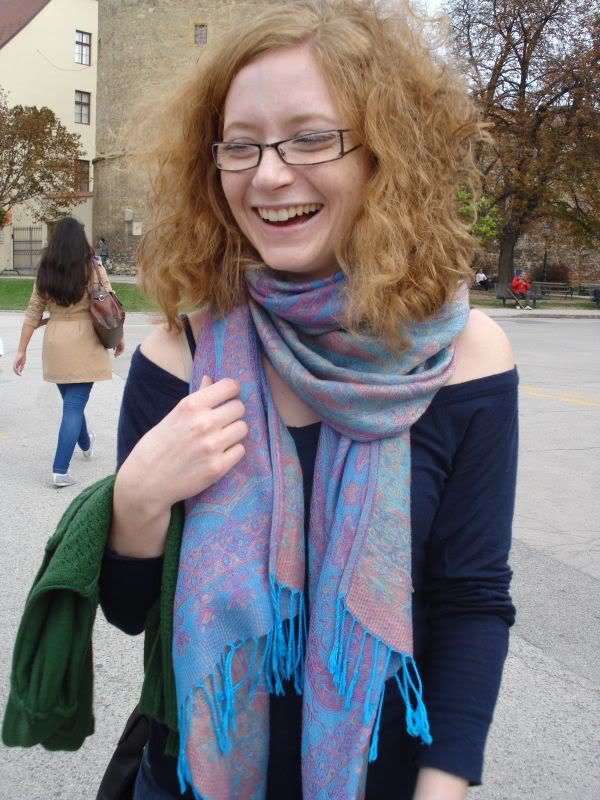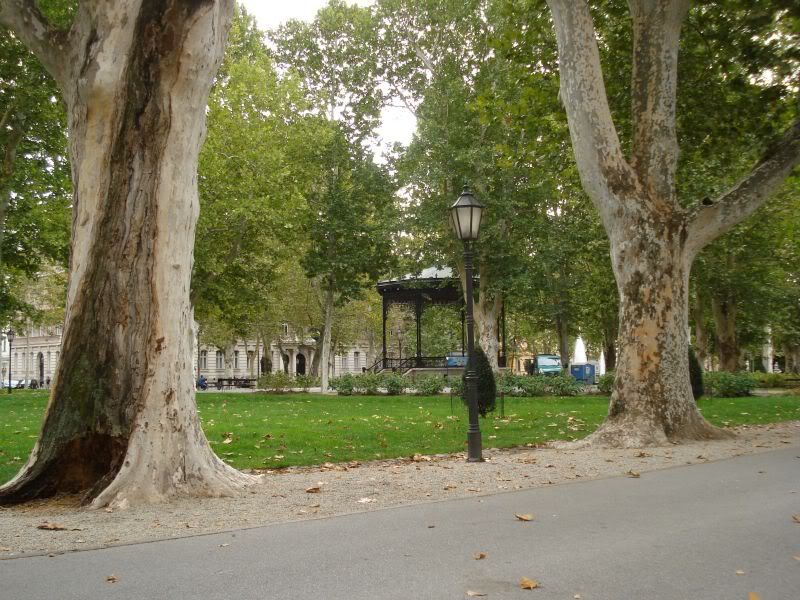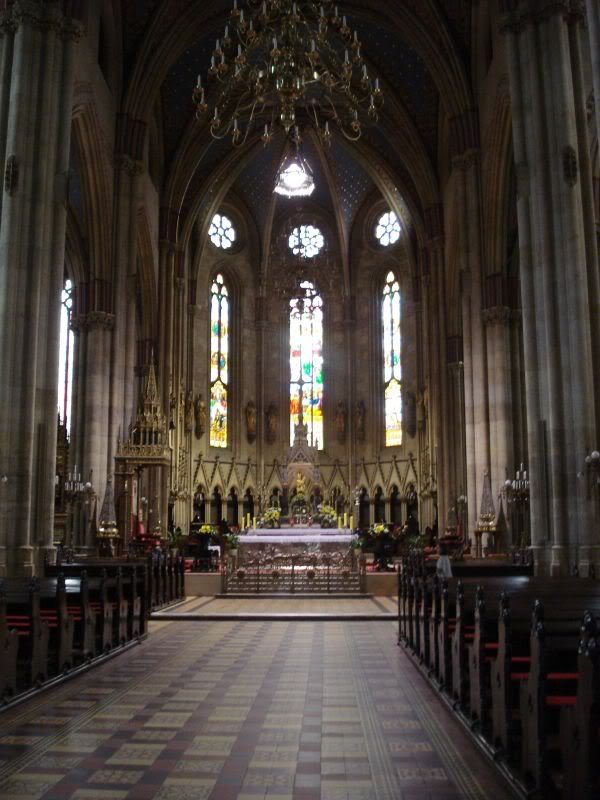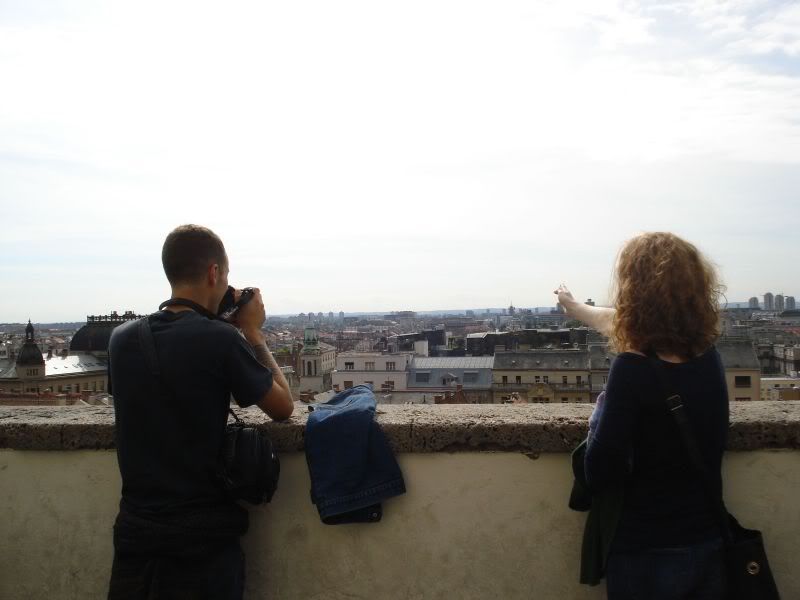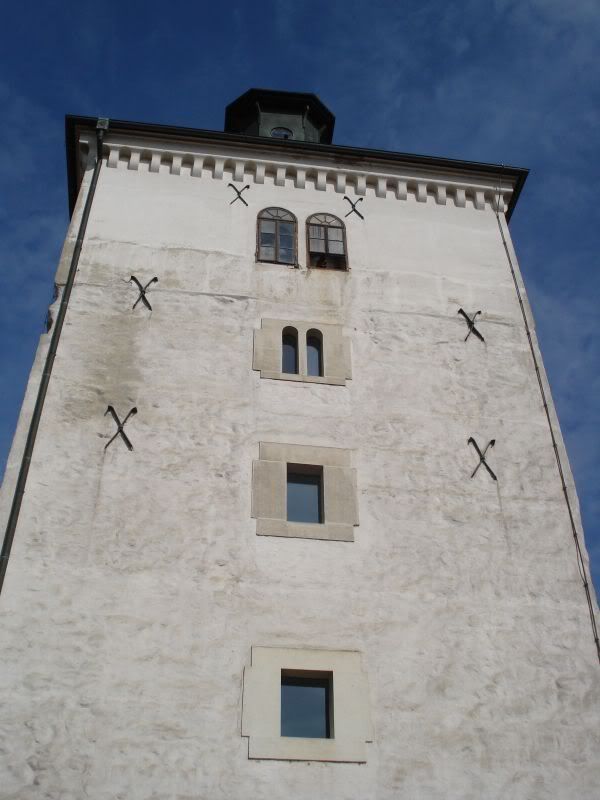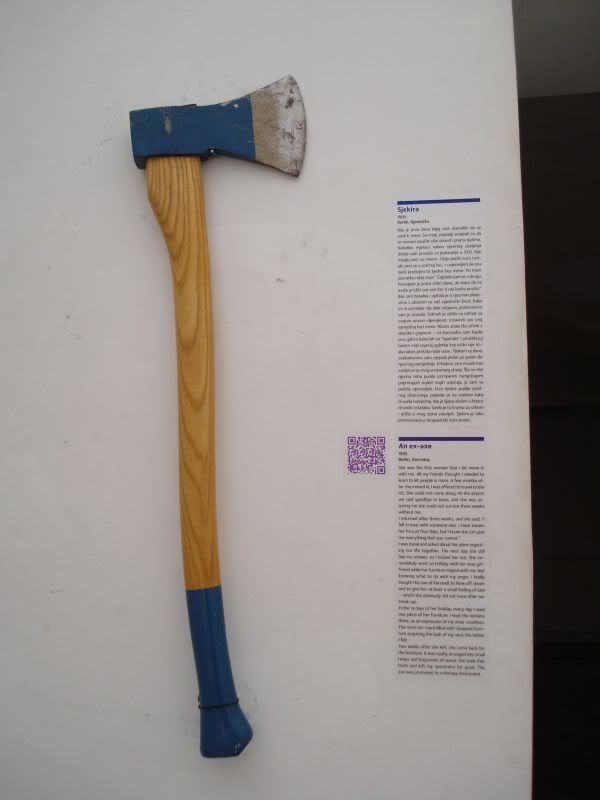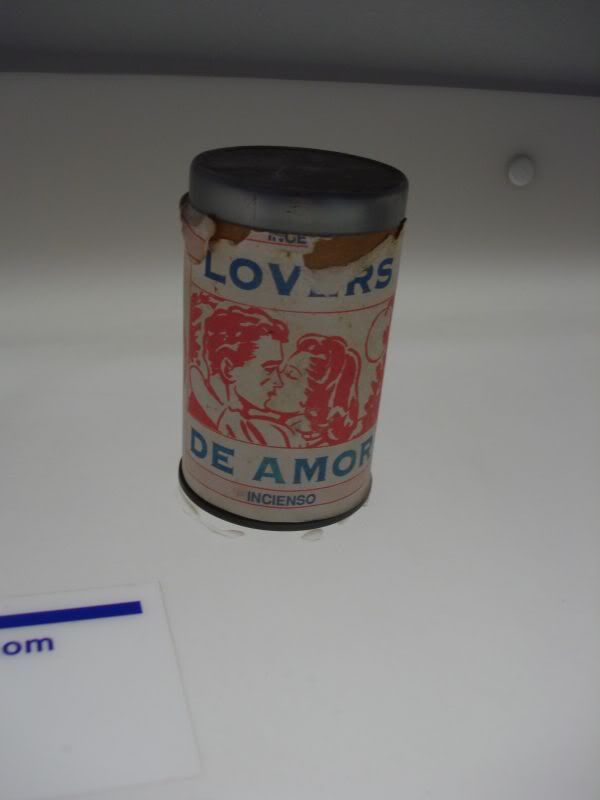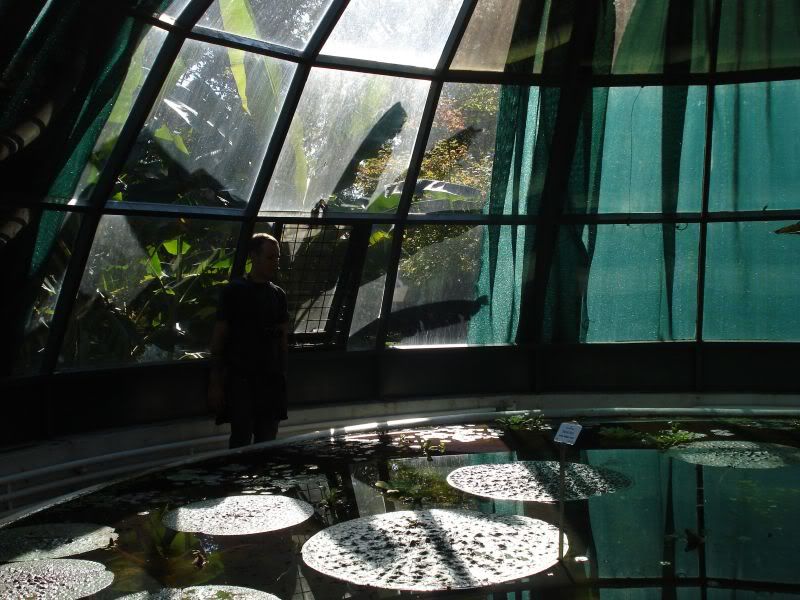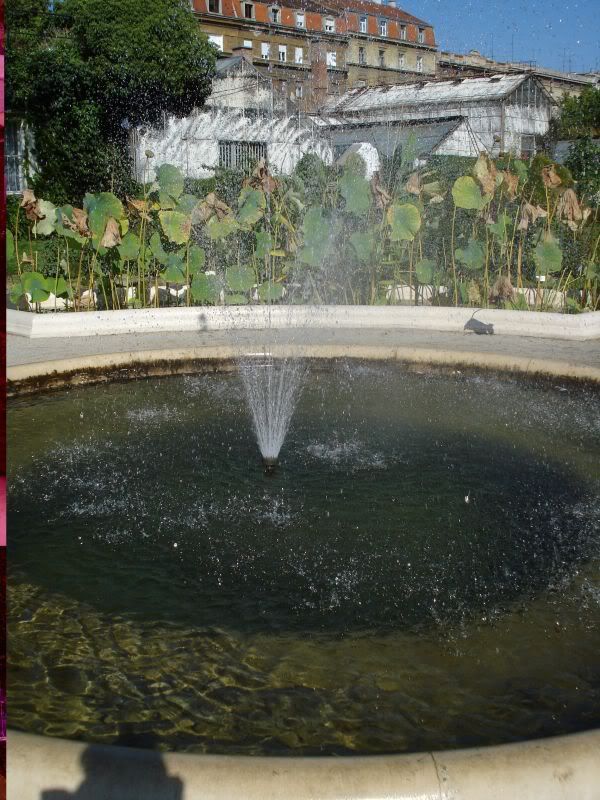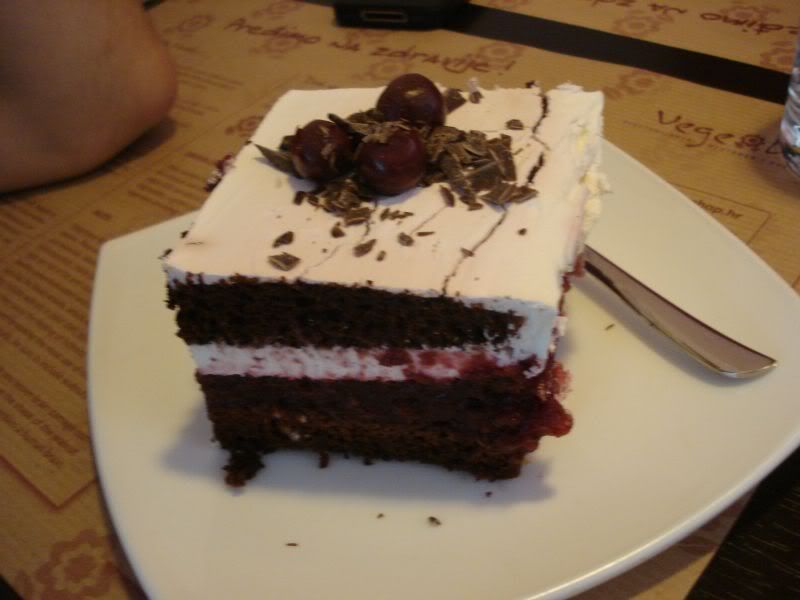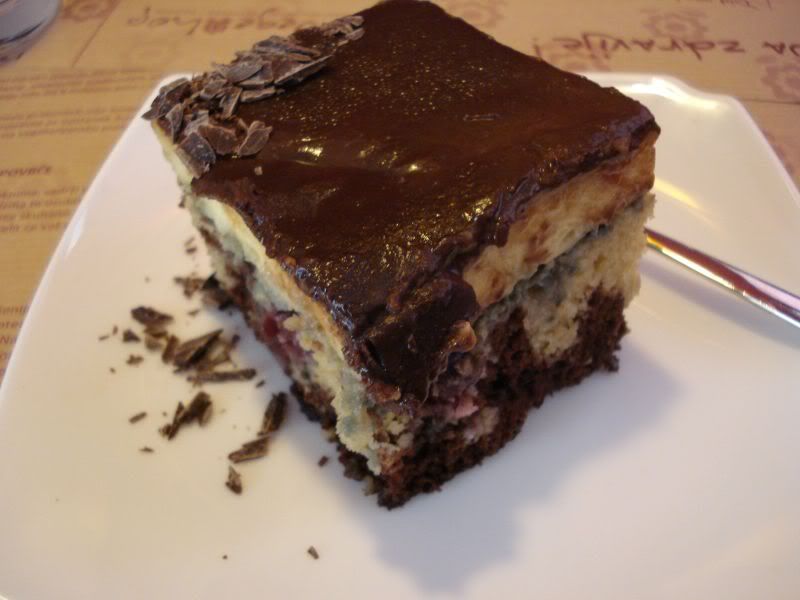He had a great point. All the bridges have stairs, and you can't go more than a few blocks without crossing a canal. It's not likely to be renovated for accessibility any time soon, either. Historic preservation would preclude it, for one thing.
This makes Venice probably the least convenient city in Europe, and possibly the world. That said, the culture here transmutes inconvenience into a luxury and a privilege. Venice demands a slower pace of life. What it gives is proportionate to what you put into it. However, we were perhaps not in the best state of mind to appreciate Venice's joys on its own terms.
We were in Venice for two full days, just enough to get a taste of it before leaving for Rome. And taste we did: most of our adventures in Venice were culinary. We ate well in Italy. Despite my desire to return from Europe with a little money leftover, we were indulgent in Venice.
Jenna and I made it our goal to enjoy as much pasta and pizza as humanly possible in Italy. Food is, in general, a little more expensive in Italy than in the U.S., but on the plus side, pasta, whether really good or just average, costs about the same everywhere. Our choices were limited by our dietary restrictions., but we were able to sample some incredible pasta aglio, olio, e pepperoncino; pomodoro; and all'arrabiata (the latter only when it doesn't include pork). Neither Venice nor Rome are considered great cities for pasta or pizza. In the U.S., we're accustomed to southern Italian food. Venice is more of a seafood and polenta city. Regardless, even the worst pasta was better than almost any I've eaten in America, and about a trillion times better than the miserable bullshit they served me in Ploče, Croatia, where, arguably, I should've known better. A more thorough, scientific comparison of the foods we ate in Italy will ensue in our Rome write-up.
It was in this spirit that, on our first full day in Venice, we ate four meals out at restaurants. I hope to defend this possibly inexcusable use of money in two ways: 1. the food was all really good, and 2. we've mostly been eating two meals a day, at least one of which often consists of bread and some kind of spread.
We arrived on the afternoon of the 6th. Once again, we hadn't had any luck with CouchSurfing. The Venetian hosts were, generally, single, middle-aged men with hurriedly-filled-out profiles seeking female surfers only. Keep it classy, Italy. We used the internet at Café Brek, a weird cafeteria-style restaurant next to the train station. It's nice to imagine wandering the streets of romantic Europe until you find a lovely, quaint little café where some unironically-mustached guy named Marcel or whatever slams out perfect espressos and never gives you attitude if you ask him to reset the router, but realistically, when you're hauling 45 pounds of luggage on your back and you have two hours before hostel receptions start closing, you take what you can get. Fortunately, Brek wasn't so bad. It had a lot of organic foods, the coffee was actually decent, and we had really huge salads, with nice olive oil and vinegar, for like $5.50 each, which is a good deal in Venice.
We found - to our surprise - a campground nearby for about half the price of a hostel. It was just across the water from Venice (which is a series of islands. I didn't know this until I got to Venice; I just thought it was an inland city with an appreciation for canals). It was a lot nicer than the campground we slept in in Croatia, but it wasn't a wilderness experience or anything. When the directions to your campground are "cross the street from the Hilton and take a right at the BMW dealership," you know largely what to expect.
Jenna:
Three months is a long time. It is, honestly, too long to travel with one person. I'm sick of traveling. This trip has been a life-changing, unforgettable experience, but part of what it's taught me is how not to travel next time. In a way, I'm glad we saw so many cities. Many of them were places I've always wanted to see; some were places I thought to want to see. Each place has been a unique and valuable experience, but I know now that three days maximum in each place, bookended by 12-hour travel days and hours spent desperately searching for a new place to stay, after having just done the same thing two or three days before, is not how I want to travel in the future.
The parts of our trip that I've liked best have been the looser, more unplanned parts, and times we had a little more time in a city to really get a feel for it, where we could really settle where we were staying and get to know the area. Berlin benefited from this for me. I loved working at Henrike and Digny's farm in the Netherlands. The days we we spent wandering pretty much without a plan in the southern Czech Republic were wonderful.
When I (or we) travel again in the future (when we're not broke, if that ever happens), I want to spend a minimum of four or realistically maybe five full days, not including the day you arrive or leave, in each place. Aram and I are talking about doing the Lycian Way in Turkey together, and then Greece, Albania, Macedonia, and Montenegro - maybe a six week trip, all told. I feel like we've learned a lot on this trip about traveling in general. Obviously this dream is far away.
I digress. All of this is not to say that this trip hasn't been fulfilling, fun, and invaluable in countless ways. Despite our travel-weariness, Venice was beautiful, some kind of strange not-quite-real destination city, and I enjoyed wandering it.
Our first day, we caught a bus in Mestre across the bridge. It was impossibly crowded. It was here we gained our first insight into Venice's tourist crowds. We stepped off the bus in Venice proper and shuffled with the sea of people over a small footbridge. We decided to head toward the Jewish Ghetto, but ended up walking a bit beyond it, wandering the maze of small streets and alleys, some of which end abruptly in the water. At some point, suddenly, there were no more crowds. I guess we had inadvertently left the touristy area. It was much more pleasant to walk just the two of us. It was a warm day and we strolled for a while, through mostly empty streets.
Afterwards, we continued on into the Ghetto. There's not too much to see in the small area, but it was interesting to be there.
I was glad I did when we got our food at Gam Gam, an Israeli restaurant in the heart of the Jewish quarter which served us, without a doubt, the best hummus either of us had ever tasted. It even surpassed Byblo's, the Middle Eastern restaurant close to my hometown, which up to this point held the Best Hummus title for me.
Aram and I had decided to go to the Peggy Guggenheim Collection in the Dorsoduro neighborhood. Our path there would lead us through most of the city. It's really kind of an amazing place, but one wonders what it's like to actually live there. As Aram has explained, getting around Venice is difficult. There are no cars, biking is out of the question, walking is slow, and public transportation is expensive. Certainly not every resident has a personal boat, right? I don't know. It just seems that so many of the things that make Venice so lovely, romantic, and charming to a tourist would actually be a huge pain if you lived there all the time.
In any case, we were tourists, and weren't in a hurry, so we really enjoyed our meandering route through the city to the Peggy Guggenheim.
We had the good fortune to unexpectedly pass a free gallery. Most of the stuff was kind of strange and stupidly modern (but, of course, this is to me, so take that assessment with a tablespoon or so of salt), but there were some really cool Fernando Botero pieces on display - a number of oil paintings from his Circus series, and some sculptures, which were unbelievably cool.
The Peggy Guggenheim Collection was much smaller than I think either of us had imagined, but there were some really interesting works.
 |
| Empire of Light, Rene Magritte. Obviously not my photo, because the light was really difficult in the gallery. Probably one of the best paintings ever. |
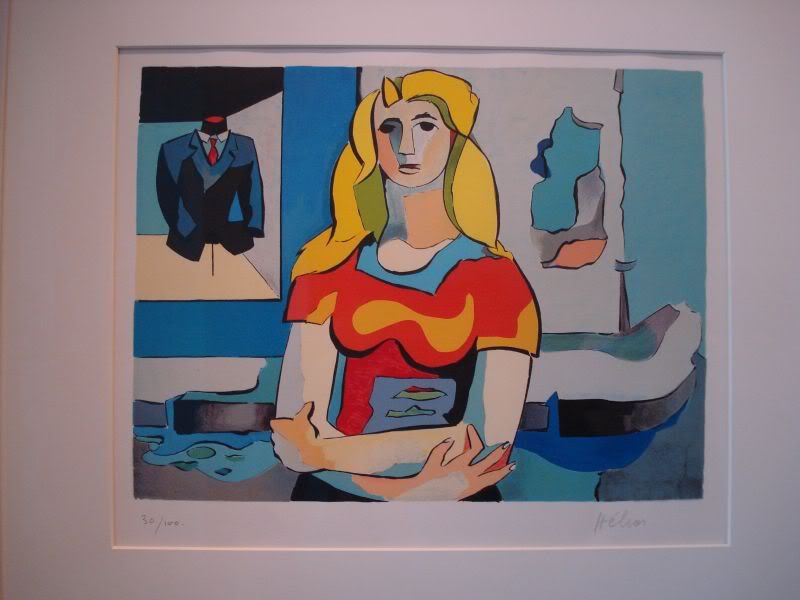 |
| Fille au Mannequin, Jean Hélion |
 |
| Circumcision, Jackson Pollack |
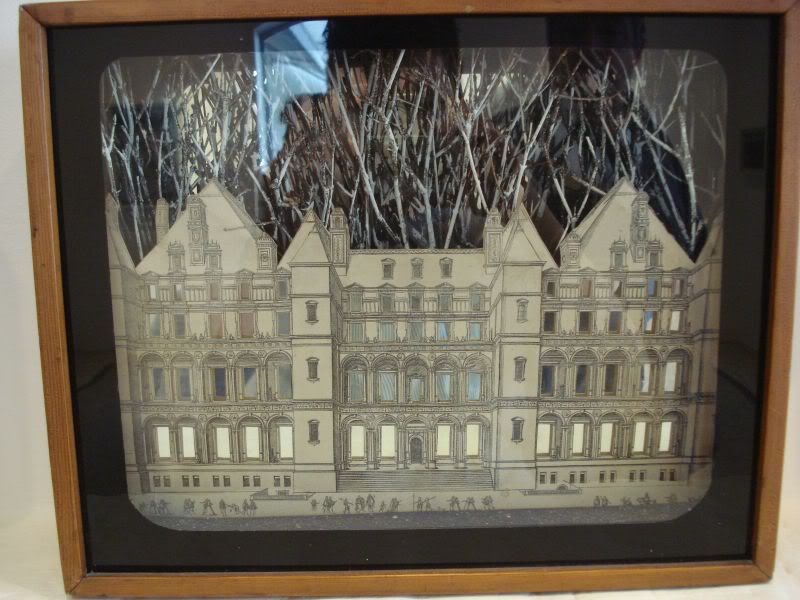 |
| Setting for a Fairy Tale, Joseph Cornell |
 |
| Silver Bedhead, Alexander Calder. Commissioned by Peggy Guggenheim for her personal use. |
In addition to the permanent holdings, there was a featured exhibition of the work of Giuseppe Capogrossi, who, I guess, is a big deal in Italy. I had heard of him, vaguely, but didn't know much about his work (I am not very well educated in art!). The exhibit started with his earlier, figurative work, and followed his progression to the "symbol" art for which he's known.
 |
| The Two Guitars |
 |
| Study of a Window |
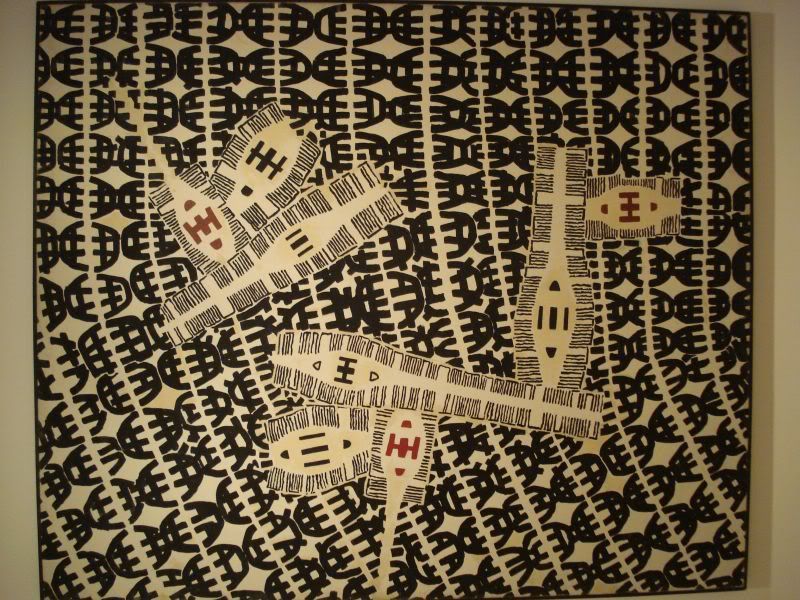 |
| Surface 137 |
 |
| Surface 636 |
 |
| Surface 600 |
I have to be honest: when I saw some of these paintings, my first thoughts were quite negative. More specifically, I thought, "Man, this is some bullshit." Halfway through the exhibit, I felt that some strange force had caused me to involuntarily change my opinion. I felt drawn to the mesmerizing patterns of Capogrossi's symbol, and a kind of in awe at how many very different paintings he could create using the same basic visual language. I have to admit that, by the end, I begrudgingly liked his work a lot, though I'm still not sure I understand its artistic significance.
Before leaving the museum, we hung out on the back porch of the museum building, Peggy Guggenheim's former house. You know, just a regular ol' afternoon-in-the-backyard kind of porch:
We walked around for quite a while after the museum, browsing and window shopping at antique shops and Murano glass galleries.
We ate dinner at a touristy place in a big square outside, enjoying the people-watching opportunities. There was a pair our age blowing giant bubbles in the square, kids leaping around trying to pop them. The food was delicious, as most of our meals in Venice were. We wandered for a few hours after dinner, enjoying the romantic feeling of Venice by night. When you move away from the tourist areas, you can find some lovely little alleys and streets that are mostly empty. The night was cool and pleasant.
We took the bus back and collapsed easily in our tent. There was definitely something nice about camping in Venice (or Mestre, to be exact). Venice is such an unrealistic, fairytale city; I enjoyed the contrast of camping in a tent just across the river.
Aram here again. The next day, we elected to take the water bus to Lido on Jenna's dad's recommendation. Lido is an island a bit further out toward the Mediterranean, just a few minutes out from Venice. We split a baguette for breakfast and paid the steep bill for the water bus.
Lido is long and narrow, a needle of an island. The water bus left us in an attractive, quintessentially Mediterranean town at one end. Lido's primary economic and existential purpose is pleasurable vacationing. By this time of year, the industry was largely shut down. We had the island mostly to ourselves, despite the balmy weather. We tried to rent bikes from an automated rack across from the ferry, but realized we had no concept of how to do that, so we walked. We went a few blocks and came to the Grande Albergo Ausonia & Hungaria, a splendid Art Nouveau hotel. We walked inside, and were looked at with unfriendly curiosity.
We started across the island's narrow dimension, and came to a beach. There was a seaside restaurant and wooden promenade.
It was a sort of gray day, so there were only a few people on the beach, and no one in the water, but Jenna wanted to swim. I couldn't get over how cold the water looked, but she said it was tolerable.
After Jenna swam, we started walking the length of the island. We passed a street vendor playing Depeche Mode, which pleased us both. Lido was gorgeous. The houses were idyllic, and the salt-smelling breeze wavering along the wide, palm-tree-lined avenues relaxed me.
The Grand Hotel des Bains, setting of Thomas Mann's Death in Venice, was closed for renovations. Back in town, it was approaching dinner time. Rather than try to eat in Lido, we decided to get coffee and eat back in Venice. The café's patrons were uniformly tanned, carefree, and fabulously wealthy. It felt comfortable, easy, and exotic, sipping espresso in the company of these fortunate few, watching the warm colors of the sunset begin to blush across the horizon. I realized how petty my concerns about traveling were; and loved, totally, for a moment, where we were and what we were doing.
We took the water boat back, and got lost in Venice trying to find a pizzeria hidden away in an alley. I'd found it recklessly Googling "best pizza venice," and come across a testimonial on the blog of a self-described "foodie." Actually, it was our second choice, since the Internet was almost completely univocal in its slavering promotion of a pizzeria which was, unfortunately, closed on Mondays. So we settled on Ae Oche. It had a bizarre atmosphere which seemed to take a page from the Cracker Barrel school of interior decoration, and most of the customers were Americans. The pizza menu was long, with lots of odd, but tasty-sounding combinations. Being pretty limited on our options, we had two cheese-less pizzas and pasta aglio, olio, e peperoncino. It was pretty good, but not amazing.
The day had been good: full, with lots of exercise, in a beautiful place. I was glad to get out of the insane bustle of Venice for the day, as well. How could you not like Venice? It's unlike anywhere else in the world, and that is, in itself, special - tourist-driven and busy as it is. It's impossible to effectively navigate and it floods all the time (more recently, because of rising ocean levels, but it's always been pretty vulnerable), but its cheerful unwillingness to make sense is most of its appeal. It breeds inconvenience and accident of the highest order of enjoyability. We had fantastic food, saw some great art, got lost in the uniquely attractive streets, and experienced the weird and romantic trials of life in the city of canals. By the time we checked out of our odd campground the next morning to convey ourselves to Rome, I was sad to leave Venice's slightly crazy bubble of unreality.
